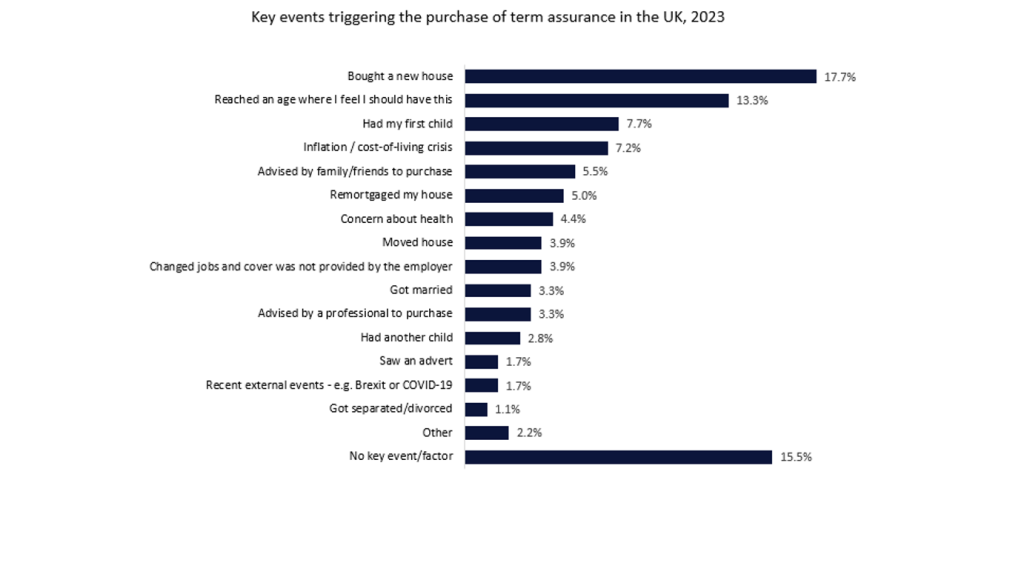
Only 39% of UK adults consider providing financial security for their family in the event of death as essential, compared to 80% who view broadband and mobile phones (71%) essential for daily living, according to new research from Scottish Widows.
The Scottish Widows Protection Report found that just over a quarter (28%) of the 5,144 UK adults polled felt financial security for dependents in the event of becoming critically ill or a partner being unable to work (18%) was a necessity.
The report found just a third (33%) of the UK population have a life insurance policy, less than one in 10 (8%) have critical illness cover and fewer than one in 20 (4%) have income protection insurance.
How well do you really know your competitors?
Access the most comprehensive Company Profiles on the market, powered by GlobalData. Save hours of research. Gain competitive edge.

Thank you!
Your download email will arrive shortly
Not ready to buy yet? Download a free sample
We are confident about the unique quality of our Company Profiles. However, we want you to make the most beneficial decision for your business, so we offer a free sample that you can download by submitting the below form
By GlobalDataThe age group where the largest proportion of people had protection is 35-44, with those who had mortgages most likely to own financial protection products.
Almost 45% of 35-49 year-olds feel life insurance is essential, with almost a quarter (24%) of the same group feeling that protecting their or their partner’s income is essential, compared to 18% of the general population.
Despite this, just under a quarter of those polled didn’t know how long they could pay the mortgage for, or said they would run out of money within five months if they lost significant income.
Almost half said they could live on a single income if necessary, cutting back on spending (43%), using savings (38%) and relying on the state (27%) for support if one wage earner was unable to work for six months or more. Less than one in 10 (8%) would claim on an insurance policy, and a quarter don’t know how they would cope.
Esther Dijkstra, protection expert at Scottish Widows, said: "The Mortgage Market Review has placed greater scrutiny over lifestyle and expenditure, with an increase in mortgage holders and potential new longer repayment terms impacting the way we assess our short and longer term financial priorities, yet more of us continue to give more attention to home, contents and car insurance than protecting mortgage repayments."







